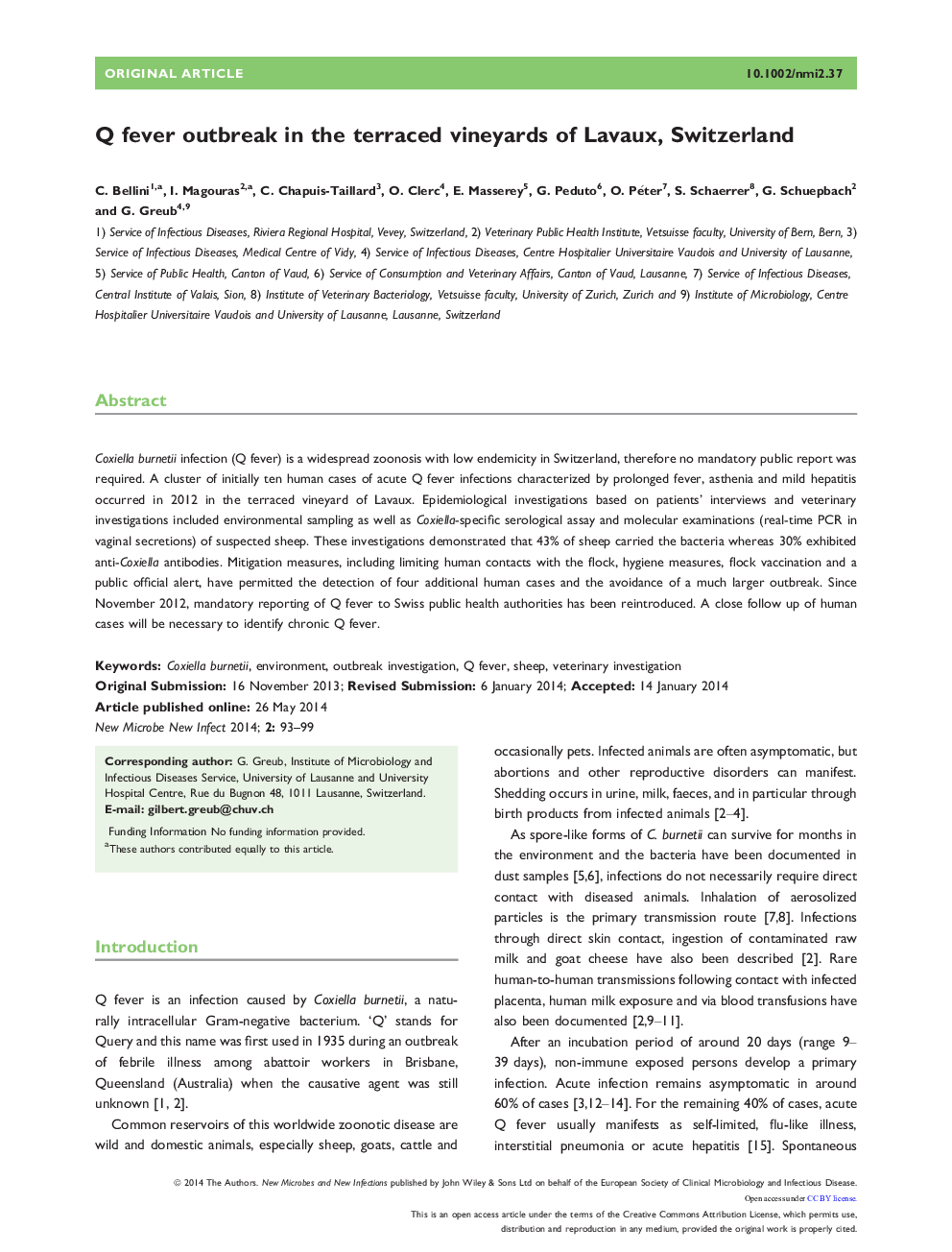| Article ID | Journal | Published Year | Pages | File Type |
|---|---|---|---|---|
| 3417692 | New Microbes and New Infections | 2014 | 7 Pages |
Coxiella burnetii infection (Q fever) is a widespread zoonosis with low endemicity in Switzerland, therefore no mandatory public report was required. A cluster of initially ten human cases of acute Q fever infections characterized by prolonged fever, asthenia and mild hepatitis occurred in 2012 in the terraced vineyard of Lavaux. Epidemiological investigations based on patients’ interviews and veterinary investigations included environmental sampling as well as Coxiella-specific serological assay and molecular examinations (real-time PCR in vaginal secretions) of suspected sheep. These investigations demonstrated that 43% of sheep carried the bacteria whereas 30% exhibited anti-Coxiella antibodies. Mitigation measures, including limiting human contacts with the flock, hygiene measures, flock vaccination and a public official alert, have permitted the detection of four additional human cases and the avoidance of a much larger outbreak. Since November 2012, mandatory reporting of Q fever to Swiss public health authorities has been reintroduced. A close follow up of human cases will be necessary to identify chronic Q fever.
